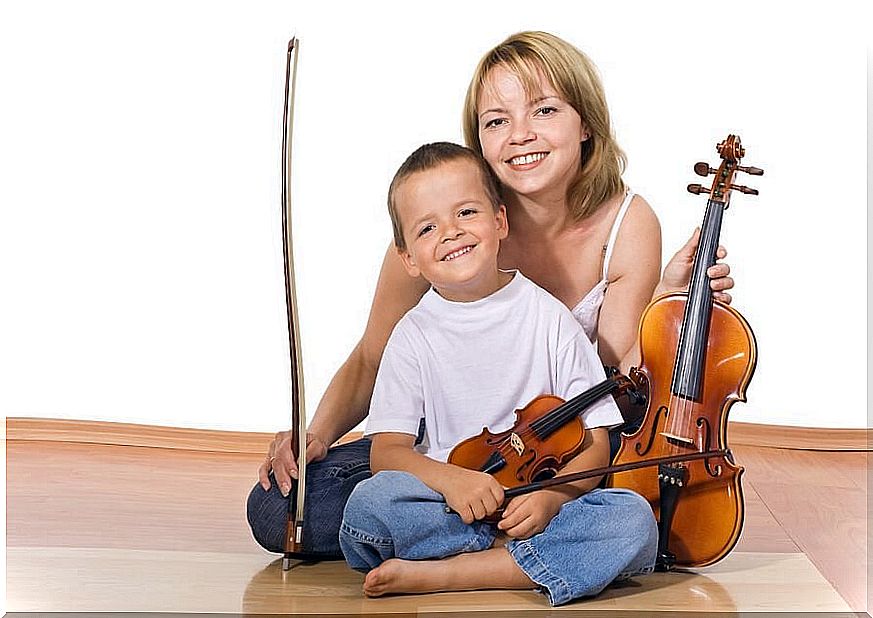Musical Instruments Have Many Advantages For Children

Musical instruments have many advantages for children. Playing a musical instrument promotes a love of discipline, trains the hearing and improves fine motor skills and concentration.
When children learn to play musical instruments , they also learn a lot about art and culture. For all of these reasons, many parents choose music as an extracurricular activity.
The main thing is not to become a virtuoso musician, but to acquire other very important skills and at the same time have fun.
Musical instruments have many advantages
The relationship between music, culture and education
Music is one of the most popular artistic manifestations that man knows. Every human society has created and reproduced sounds with instruments and with the human voice. It is used to express thoughts, feelings, emotions and ideas.
Music is present everywhere: on television, internet, radio, at home, in the office and at school. There are educational games with music and it has also been proven that music promotes learning.
Every child is naturally drawn to music and musical instruments. No wonder many children’s toys are mini pianos, xylophones, microphones, etc. This enables parents to determine which instrument the child particularly likes.
Benefits of music as a psychological and social tool
Music offers many psychological and social benefits. One of them is that it gives children the opportunity to focus and achieve their educational goals.
When children play musical instruments, they often also participate in an orchestra or musical ensemble. In this way, they can automatically get in touch with their peers and learn to work in a team.

Many parents believe that only by participating in sports can children learn about teamwork and strategies. The necessary precision to make a symphony sound good and harmonious, however, requires perfect cooperation and practice in a team.
Learning an instrument also activates sensitivity to art and culture. It also teaches children a lot about professional development and proper integration into society.
Examples from different countries
Various institutions in Latin America and Europe have introduced the “National Network of Youth and Children’s Orchestras” project developed by José Antonio Abreu in 1975 in their countries.
This program is aimed at children with limited resources who live in poor regions. By participating in artistic activities, children can distance themselves from drugs and other bad habits. At the same time, this gives them the opportunity to pursue a career as a professional musician.
Another foundation that has copied this model is the Batuta Foundation in Colombia. The Batuta Foundation has introduced musical instrument learning into the curriculum of Colombian elementary and high schools.
Children in public and private schools have the opportunity to learn string instruments, wind instruments and music theory.
Benefits of music for cognitive development
When playing a musical instrument, both halves of the brain work together to properly coordinate movements. This demands cognitive performance. This can improve memory, concentration, fine motor skills and other cognitive skills.

Specialists believe that the piano is the instrument that creates most of the neural connections in the brain. That’s because touching a different key with each finger on both hands is a very complex task. In addition, playing the piano requires a high degree of precision.
As you can see, there are numerous advantages to playing a musical instrument. You are now sure that it is good for your child to learn an instrument too.
And remember, the sooner your child starts learning music, the better. This allows it to absorb knowledge better and move forward faster.
Who knows, maybe your child will be the next Vladimir Horowitz, András Schiff, Anne-Sophie Mutter or Yo-yo Ma.









